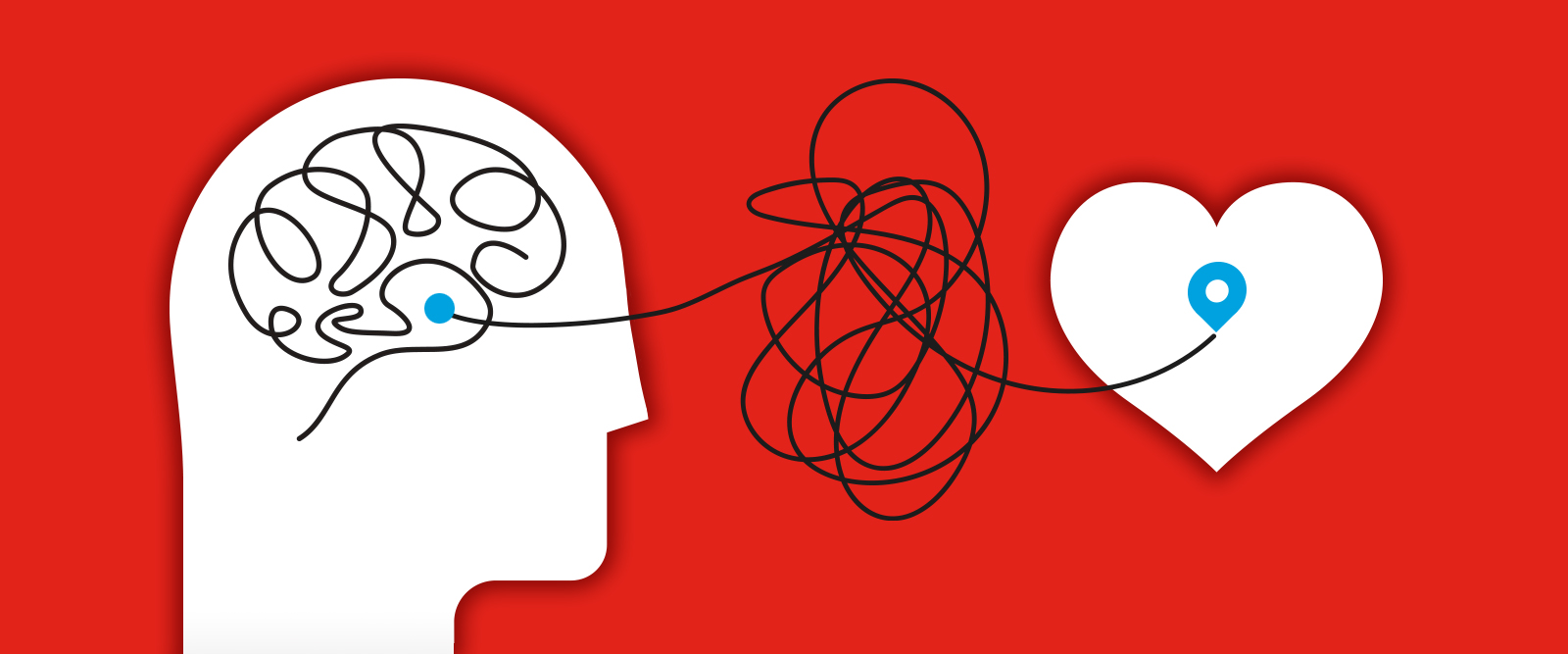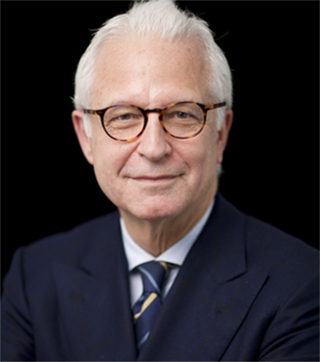An Expert’s Guide to Your Brain in Love
What happens in your brain when you feel fireworks? A leading neurosurgeon answers all your burning questions about the brain in love.

You probably know what it feels like to be head over heels in love. Your heart pounds. Your palms feel sweaty. You can’t think of anyone or anything else. But have you ever wondered why you feel so swept up? You can credit your brain, says Dr. Philip Stieg, neurosurgeon-in-chief at NewYork-Presbyterian/Weill Cornell Medical Center and director of the Weill Cornell Medicine Brain and Spine Center.
In fact, brain imaging research shows that many brain regions and neurochemicals trigger us to fall hard and become a pair. “Love is incredibly perplexing, but that’’s what makes it alluring,” says Dr. Stieg.
Turns out, that romantic rush is a lot like what happens to the brain with certain forms of addiction. But in this case, it’s a healthy addiction — one that serves a critical evolutionary purpose. Dr. Stieg spoke with Health Matters about the neurobiology of love and bonding.

Dr. Philip Stieg
Health Matters: What are the components of love?
Dr. Stieg: Research shows that romantic love is made up of lust, attraction, and attachment, and each component is handled by distinct brain systems. On my podcast, I chatted with Dr. Helen Fisher, an anthropologist and expert in the science of human attraction and love. She points out that we don’t always move from one to the other in the same order. You can fall madly in love with somebody before you’ve had sex with that person. You can also feel deeply attached to a friend and then, years later, find yourself madly in love. You can also have sex with someone without there being feelings of romantic love, only to eventually fall for that individual.
What’s happening in your brain when you feel a spark?
When you feel those butterflies, that isn’t really happening in your heart or stomach. It’s actually hormones and neurotransmitters acting up in your brain. Researchers have scanned the brains of people who are madly in love and found a heavy surge of dopamine, a neurotransmitter in the brain’s reward system that helps people feel pleasure. Dopamine, along with other chemicals, gives us that energy, focus, and obsession we feel when we’re wild about someone.
How does lust sometimes turn to attachment? How do your brain chemicals nudge that along?
It’s possible to go to bed with someone you’re not in love with and never feel anything beyond lust. Sometimes, though, we find ourselves moving from a physical relationship to one rooted in attachment. Why? The stimulation of the genitals during sex can drive up your brain’s dopamine system and trigger you to feel enchanted by the person. Additionally, the brain is flooded by both oxytocin, released when people are physically affectionate, and vasopressin, which generates the desire to guard one’s partner — creating feelings of attachment.
How is romantic love like addiction?
Falling in love is an obsession. While you’re wild about someone, your serotonin levels go down — which is the same trend typically found in people with obsessive-compulsive behavior. It’s also true that a brain in love is very similar to a brain in the throes of addiction. Further brain imaging studies show activity in the nucleus accumbens — a region of the brain that lights up when someone is addicted to a substance like cocaine or a behavior like gambling.
Is it true common antidepressants can make us fall out of love because they increase serotonin levels?
It’s possible. Taking a selective serotonin reuptake inhibitor (SSRI) drug like Prozac or Lexapro drives up the serotonin system in the brain, and that drives down the dopamine system. So with less dopamine, you are possibly dampening your ability to feel intense, romantic love. We sometimes hear of people who go on SSRI medications and suddenly feel no passion for their partner or even fall out of love. That’s why I think it’s so important that when people are being treated with SSRI drugs they work with a licensed neuropsychopharmacologist, who fully understands the interactions and implications of taking these medications, as well as proper medical guidance.
Why does a crush feel all-consuming?
That’s because it’s a drive. The area of the brain that produces dopamine and lights up when we’re in love is near other regions that control thirst and hunger. So, it feels all-consuming because it is all-consuming—and it’s meant to spur us into action. This biological drive evolved millions of years ago to give us the ability to focus intently on another member of our species and mate.
Is love a uniquely human emotion?
Human beings aren’t the only ones who experience romantic love — other animals do too. As Dr. Fisher mentioned on the podcast, research has found that more than 100 species show some form of romantic love. Their dopamine system, like ours, gets things going. When the female elephant is in estrus, or heat, for example, she’ll concentrate on one male and they’ll snuggle up and pat each other with their trunks before they mate. Isn’t it romantic?
How do we progress from feeling smitten to wanting to move in or have kids together?
Attachment is a bit like a mother’s love, where she’d step in front of a bullet to protect her child. This maternal connection is driven by oxytocin (the so-called “bonding” or “cuddle” hormone), which is often heightened between mother and baby at birth. Likewise, studies have shown that vasopressin contributes toward protective behavior and parents’ desire to create a safe environment for their children.
How has the pandemic impacted the way we fall in love? Can we fall in love anyway?
No doubt, COVID has changed just about every aspect of life, including how we fall in love. Because of the pandemic, many people are meeting virtually or at least not coming into close physical contact. So they’re getting to know each other, finding out their similarities, and forming an attachment. You can definitely be close to someone as a friend first and have it grow into a lustful romance. So yes, we can still fall in love in the age of COVID-19.
You can think of it this way: There are varying degrees of lust, attraction, and attachment in any relationship. Love is such a complex thing. And it all comes back to our survival and the evolutionary need for us to fall deeply in love and partner up.
Listen to more episodes of This is Your Brain With Dr. Phil Stieg.
Philip Stieg, Ph.D., M.D., is neurosurgeon-in-chief at NewYork-Presbyterian/Weill Cornell Medical Center, director of the Weill Cornell Medicine Brain and Spine Center, and Chairman of the Department of Neurological Surgery at Weill Cornell Medicine. He has developed an international reputation in the area of cerebrovascular disorders and skull base surgery and is considered one of the top neurosurgeons in the world for aneurysms, AVMs, carotid occlusion, and other cerebrovascular conditions. Dr. Stieg is the recipient of multiple awards and honors, including the 2018 Ellis Island Medal of Honor and the American Heart Association/Stroke Association’s 2018 National Stroke Hero.
